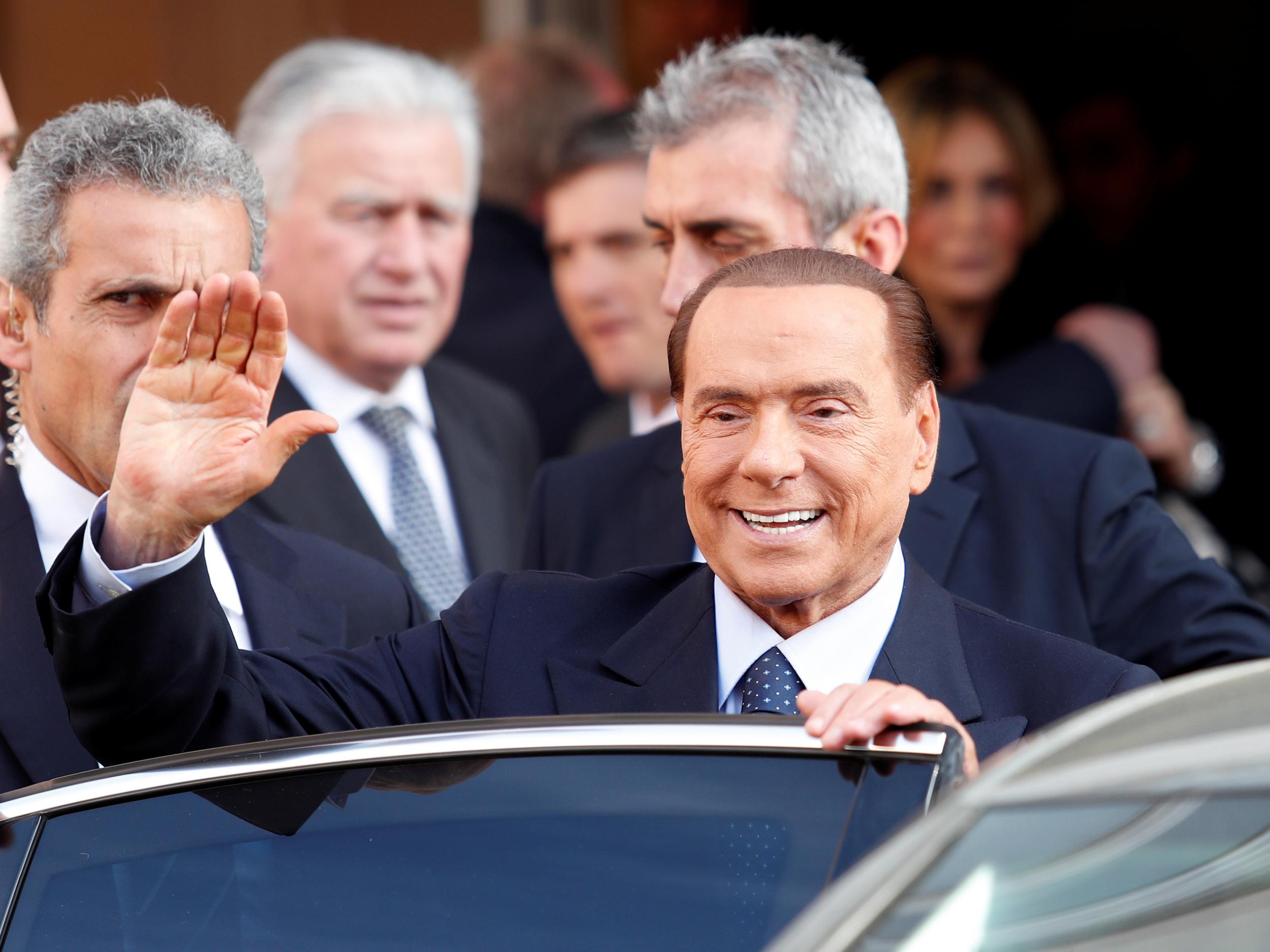Italy elections: Berlusconi's plans to deport 600,000 migrants 'not possible' and 'would take more than 15 years', say experts
'Throughout history, far-fetched rhetoric takes the place of realism in an election campaign...there’s nothing realistic about mass deportations'

Your support helps us to tell the story
From reproductive rights to climate change to Big Tech, The Independent is on the ground when the story is developing. Whether it's investigating the financials of Elon Musk's pro-Trump PAC or producing our latest documentary, 'The A Word', which shines a light on the American women fighting for reproductive rights, we know how important it is to parse out the facts from the messaging.
At such a critical moment in US history, we need reporters on the ground. Your donation allows us to keep sending journalists to speak to both sides of the story.
The Independent is trusted by Americans across the entire political spectrum. And unlike many other quality news outlets, we choose not to lock Americans out of our reporting and analysis with paywalls. We believe quality journalism should be available to everyone, paid for by those who can afford it.
Your support makes all the difference.Silvio Berlusconi’s pledge to deport more than half a million migrants from Italy should his coalition enter government in March would simply not be possible, a range of experts have said.
“These 600,000 people, we will pick them up using police, law enforcement and the military...everyone can help identify them by pointing them out, and they will be picked up,” Italy’s former prime minister said, claiming immigration was a “social bomb” linked to crime.
The 81-year-old made the comments just days after anti-immigrant sentiment spilled over in the city of Macerata, 125 miles east of Rome, when six African migrants were shot in a racially-motivated incident.
Surveys show Italians are increasingly uneasy over the numbers of migrants that have reached Italian shores by boat over the past four years. And politicians are keen to get on the right side of public opinion ahead of the 4 March parliamentary elections.
Mr Berlusconi is banned from running for office after being convicted of tax fraud. But his party, Forza Italia (Go Italy!), has entered a coalition with the Northern League and the smaller Brothers of Italy in the upcoming elections, which could allow him a seat at the table.
The centre-right coalition is currently leading in the polls, but many have accused the group of gross exaggeration over their claims they will purge hundreds of thousands of migrants from the country.
“Throughout history, far-fetched rhetoric takes the place of realism in an election campaign,” Salvatore Fachile, a Rome lawyer who specialises in immigration, said. “There’s nothing realistic about mass deportations.”
Flavio Di Giacomo, a spokesman for the United Nations’ International Organisation for Migration in Rome, said it was simply impossible to deport that many people.
“For many years people have been saying more irregular migrants should be sent home, but in fact it has not been possible,” he said.
League leader Matteo Salvini claimed “irregular” migrants would be rounded up and sent home “in 15 minutes” if he and his allies take power, after just 6,500 were deported in 2017.
“If we wanted to repatriate 600,000 irregular migrants, and we could send 200 per working day, it would take more than 15 years,” said Senator Luigi Manconi, a member of the ruling Democratic Party (PD) who next month will take charge of the country’s anti-racism office.
The cost of deportations is also high. Forced returns require that migrants be put in detention centres before departure, planes must be chartered and wages paid – two guards for each migrant.
In 2016, the repatriation of 29 Tunisians from Italy cost 115,000 euros (£100,000). On average, repatriations conducted jointly with EU border agency Frontex cost 6,500 euros each, an EU observer study found last year.
Italy has bilateral agreements with 24 non-European countries allowing for returns, but migrants often avoid being identified or countries refuse to recognise them as citizens.
Anis Amri, a Tunisian migrant who mowed down 12 people with a truck at a Berlin Christmas market in December 2016, was meant to be deported when freed from an Italian prison in 2015. But Tunisia, with which Italy has a return agreement, did not recognise him as a citizen within the given timeframe, so he was ordered to leave the country and released.
It comes after authorities named the far-right extremist suspected of carrying out the Macerata attack as Luca Traina and claimed he was “lucid and determined, aware of what he had done”.
The 28-year-old Italian, who was an unsuccessful candidate last year in a local election for the Northern League, was arrested on suspicion of multiple counts of attempted murder aggravated by “racial hatred” following the drive-by attack.
Just days earlier, the body of 18-year-old Italian Pamela Mastropietro was discovered cut up and hidden in two suitcases and a Nigerian migrant was arrested in connection with her death.
More than 200 people took to the streets of Macerata on Tuesday in a candlelit vigil of remembrance for the woman.
Additional reporting by agencies
Join our commenting forum
Join thought-provoking conversations, follow other Independent readers and see their replies
Comments